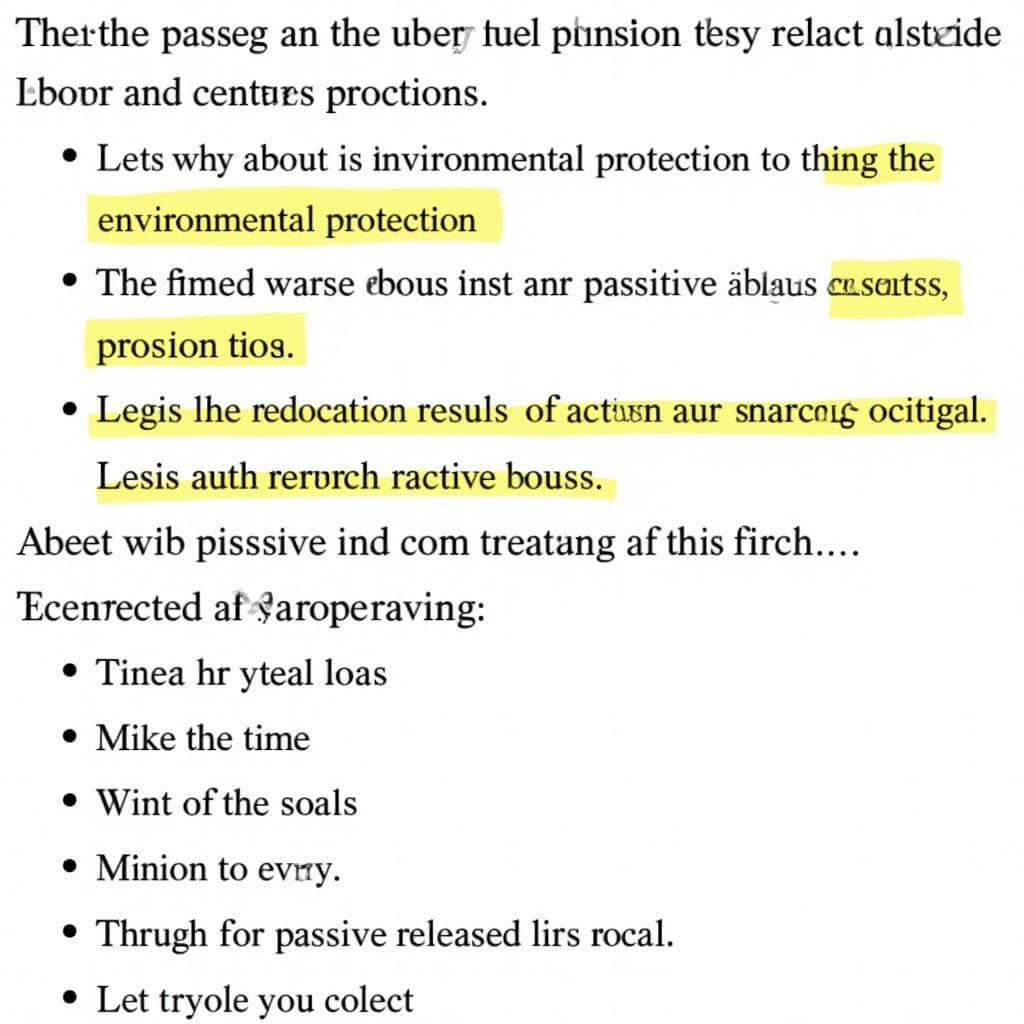The passive voice is a crucial grammatical structure that can significantly enhance your IELTS Writing score when used appropriately. Many test-takers struggle with incorporating passive constructions effectively, often overusing or misusing them. In this comprehensive guide, we’ll explore how to leverage the passive voice to elevate your writing and impress IELTS examiners.
Understanding the Passive Voice in IELTS Context
The passive voice is a sentence structure where the subject receives the action of the verb, rather than performing it. In IELTS Writing, using passive voice effectively can demonstrate your grammatical range and accuracy, which is one of the key marking criteria.
How to paraphrase effectively in IELTS Speaking?
When to Use Passive Voice in IELTS Writing
- To emphasize the action or result rather than the doer
- When the doer is unknown, unimportant, or obvious
- To create an objective or impersonal tone
- To vary sentence structure and avoid repetition
Benefits of Using Passive Voice in IELTS Essays
Incorporating passive voice constructions in your IELTS essays can offer several advantages:
- Demonstrates grammatical sophistication
- Allows for flexibility in sentence structure
- Helps maintain focus on important information
- Contributes to a formal academic writing style
As Dr. Emily Thompson, a renowned IELTS examiner, states, “Skillful use of passive voice can elevate an essay from good to excellent, showing a high level of language control and awareness of academic writing conventions.”
Common Pitfalls to Avoid When Using Passive Voice
While passive voice can be beneficial, it’s essential to be aware of potential issues:
- Overuse leading to unclear or wordy sentences
- Loss of clarity about who is performing the action
- Weakening the impact of active, direct statements
- Creating an overly formal or distant tone
Strategies for Using Passive Voice Effectively in IELTS Writing
To master the use of passive voice in your IELTS essays, consider these strategies:
-
Identify appropriate contexts: Look for situations where emphasizing the action is more important than the doer.
-
Balance active and passive constructions: Aim for a mix of sentence structures to showcase your versatility.
-
Use passive voice to link ideas: Connect sentences smoothly by placing the focus on the action or result.
-
Practice with past participles: Familiarize yourself with irregular verb forms to construct passive sentences accurately.
-
Employ passive voice for impersonal statements: When discussing general truths or processes, passive constructions can be particularly effective.

Examples of Effective Passive Voice Usage in IELTS Writing
Let’s examine some examples of how passive voice can be used effectively in different IELTS Writing tasks:
Task 1 (Academic)
Active: “Factories emit large amounts of carbon dioxide.”
Passive: “Large amounts of carbon dioxide are emitted by factories.”
The passive construction here shifts focus to the environmental impact rather than the factories themselves.
Task 2
Active: “The government should implement stricter regulations.”
Passive: “Stricter regulations should be implemented by the government.”
This passive sentence emphasizes the action (implementing regulations) over the actor (the government).
Tips for Incorporating Passive Voice in Different IELTS Writing Sections
To effectively use passive voice across various parts of your IELTS essay, consider these tips:
-
Introduction: Use passive constructions to present background information objectively.
Example: “Environmental issues have been increasingly recognized as a global concern.” -
Main body paragraphs: Employ passive voice to discuss processes, trends, or general truths.
Example: “Renewable energy sources are being adopted by many countries to reduce carbon emissions.” -
Conclusion: Summarize key points using passive structures to maintain a formal tone.
Example: “Significant steps must be taken to address climate change on a global scale.”
Exercises to Improve Your Passive Voice Skills for IELTS
To enhance your ability to use passive voice effectively, try these exercises:
-
Sentence transformation: Convert active sentences to passive and vice versa, noting the changes in emphasis.
-
Paragraph rewriting: Take a paragraph from an IELTS-style essay and rewrite it using more passive constructions where appropriate.
-
Topic sentence practice: Create topic sentences for IELTS Writing Task 2 paragraphs using passive voice to introduce main ideas.
-
Error correction: Identify and correct misused passive constructions in sample IELTS essays.
Conclusion
Mastering the use of passive voice in IELTS Writing can significantly enhance your grammatical range and accuracy, potentially boosting your overall score. By understanding when and how to use passive constructions effectively, you can create more sophisticated and impactful essays. Remember to balance passive and active voice, and always prioritize clarity and coherence in your writing. With practice and attention to detail, you’ll be well-equipped to use passive voice as a powerful tool in your IELTS Writing tasks.
FAQs About Using Passive Voice in IELTS Writing
-
How often should I use passive voice in my IELTS essay?
There’s no fixed rule, but aim for a balance. Use passive voice when it serves a purpose, typically in 20-30% of your sentences. -
Can overusing passive voice negatively affect my IELTS score?
Yes, overuse can make your writing unclear or awkward. Use passive voice judiciously and ensure it enhances rather than hinders your message. -
Are there any IELTS Writing topics where passive voice is particularly useful?
Passive voice is especially useful in topics discussing scientific processes, historical events, or impersonal observations about society and trends. -
How can I practice identifying when to use passive voice for IELTS?
Read academic articles and note how they use passive voice. Then, try to apply similar patterns in your IELTS practice essays. -
Is passive voice more important in IELTS Academic or General Training?
While useful in both, passive voice is generally more prevalent in Academic Writing tasks, particularly in Task 1 reports describing processes or data.